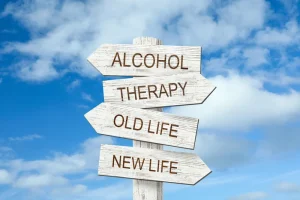
In this stage, an individual can feel they have lost control over their alcohol consumption. You may start to feel sick from heavy drinking, but enjoy its effects too much to care. Many drinkers at this stage are more likely to drink and drive or experience legal troubles as a result of their drinking. A moderate drinker might pair a glass of wine with a meal, while a regular drinker uses alcohol to feel good in general.
Help is Available During Every Stage of Alcoholism
They may also exhibit intense cravings for alcohol, experiencing withdrawal symptoms when attempting to quit or cut back on consumption. Individuals may experience intense cravings for alcohol and struggle with controlling their consumption. The need to consume alcohol becomes more compulsive, leading to a preoccupation with obtaining and consuming alcohol. As alcoholism progresses, individuals enter the middle-alcoholic stage. This stage is characterized by an escalation of alcohol dependency and a further deterioration in various aspects of one’s life.
Therapists Recommend Building Rapport to Engage Adolescent Males in Therapy
- Middle-stage alcoholism is when their drinking problem reaches more serious levels.
- Expect withdrawal symptoms, lifestyle adjustments, and emotional challenges.
- This is a crucial period, where getting help can significantly alter the course of your alcohol dependency.
- Individuals with anxiety may turn to alcohol as a way to calm their nerves or reduce feelings of panic.
- One of the biggest concerns with risky drinkers is when they don’t think they have a problem.
- Set against the backdrop of Roman oppression in first-century Palestine, the series shares an authentic look at Jesus’ revolutionary life and teachings.
Many people who have an addiction to alcohol may not want to attend treatment, though. Using alcohol during adolescence (from preteens to mid-20s) may affect brain development, making it more likely that they will be diagnosed with AUD later in life. However, most people with AUD—no matter their age or the severity of https://ecosoberhouse.com/ their alcohol problems—can benefit from treatment with behavioral health therapies, medications, or both. There are factors that pop up again and again when determining who might have an issue with alcoholism. If you’re in the “at-risk” population, it doesn’t take much to become dependent on alcohol or other drugs.
Post-acute withdrawal
- In 2021, approximately 11.3% of adults and 3.4% of adolescents in the US were identified with AUD, indicating its significant prevalence.
- The early stage of alcoholism is a critical time when individuals may not even realize that they are developing a problem.
- Alcohol addiction is characterized by a physical and psychological need to drink.
- Contact us to learn more about alcohol addiction treatment programs that can work well for your needs in recovery.
There is an evident dependence on alcohol to cope with stress or discomfort. In this phase, the most dangerous factor here is the potential alcohol habit formation that ultimately contributes to compulsive alcohol use. Initially, it triggers pleasurable sensations and dampens negative emotions, creating a consumption cycle driven by the desire for these effects. However, continued use can lead to alterations in brain structure and function, amplifying vulnerability to addiction. As these changes persist even after zero alcohol intake, the risk of relapse is present. Between 90 and 100 percent of alcoholics develop a fatty liver, which can progress to cirrhosis.
Support groups like Alcoholics Anonymous (AA) offer a sense of community and shared experience, which is invaluable for individuals on the path to recovery. These groups offer a safe space for individuals to share their struggles, successes, and setbacks with others who understand their journey. The mutual support and accountability fostered in these groups can be instrumental in maintaining long-term sobriety. Additionally, support groups often provide access to sponsors or mentors who can offer guidance and encouragement throughout the recovery process.

The Recovery Village Cherry Hill at Cooper provides a full continuum of care, from medical detox and inpatient rehab to aftercare. We are here to help you and those you love recover five stages of drinking from addiction and begin a healthier, alcohol-free future. Contact us to learn more about alcohol addiction treatment programs that can work well for your needs in recovery.

These programs provide a supportive community of individuals who have struggled with alcoholism themselves, offering guidance, encouragement, and accountability throughout the recovery process. It’s important to note that while these factors can increase an individual’s risk for developing alcoholism, they do not necessarily guarantee it. Many individuals with a family history of alcoholism or who have experienced traumatic events never develop problematic drinking patterns.

Lee Daniels Apologized to Mo’Nique for Precious Feud ‘Even If I Didn’t Understand What I Was Apologizing For’

Ultimately, the most effective treatment plan will depend on the individual’s unique needs and circumstances. It’s important to work closely with a healthcare professional to determine what type of treatment is best suited to one’s needs and goals. With the right combination of support, guidance, and resources, recovery from alcoholism is possible. Another popular treatment option is 12-step programs, such as Alcoholics Anonymous (AA).
By understanding these stages, inidividuals and their loved ones can identify signs early on, empowering them to make informed decisions about getting the help they need. The immune system is often compromised, making it more difficult for the body to fight off infections and illnesses. Additionally, the risk of accidents and injuries increases due to impaired coordination and judgment while under the influence of alcohol. What starts as casual drinking advances into dependence and addiction over time. The majority of people who struggle with alcohol addiction, or alcohol use disorder (AUD), took months or years to reach that point.
- Prolonged and heavy alcohol consumption permanently changes brain chemistry.
- People rarely spend an indefinite time in the early stages of alcoholism; it almost always progresses eventually.
- Despite efforts to hide their addiction, their drinking problem is quite obvious to others.
- It is essential for individuals struggling with end-stage alcoholism to seek help as soon as possible.